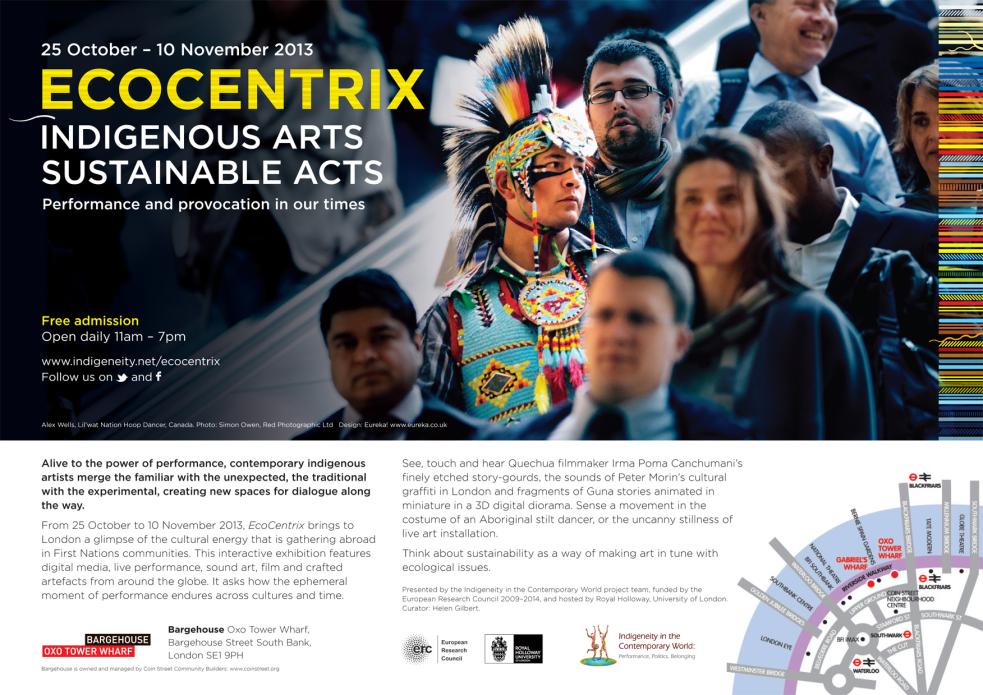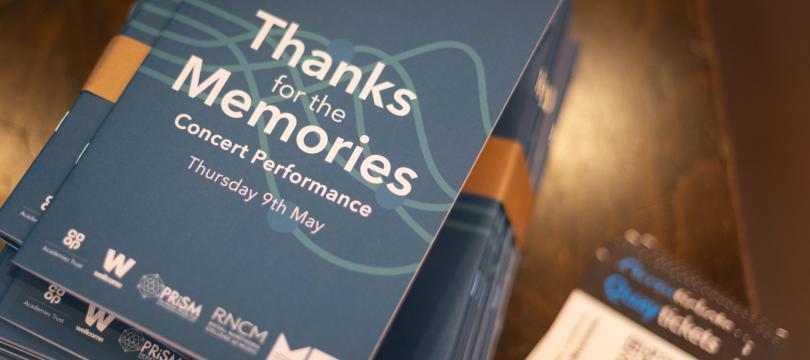EcoCentrix: Indigenous Arts, Sustainable Acts
EcoCentrix, was a free, interactive exhibition running for 17 days at Bargehouse in London.

Royal Holloway University of London
It provided unique opportunities for visitors to see, touch and hear contemporary performance-based arts from indigenous communities in the Americas, Australia, the Pacific and South Africa. Based on interdisciplinary research conducted in dialogue with over 40 performance makers, the event explored the concept of sustainability, not only as the conservation of environments but also as a collective social practice that vitalizes cultures. Over 3000 visitors attended the exhibition and it was listed among Broke in London’s ‘5 best free things to do’ in the city. Installations featured the tangible ‘remains’ of performance – photos, moving images, sounds, texts, costumes and crafted objects – in tandem with live performances, practical workshops and discussions. The exhibition, conceived and curated by Helen Gilbert and mounted with assistance from her research team and 70 volunteers, was the major public output of a 5-year project investigating how indigeneity is expressed and understood in our complex, globalizing world.
We advertised the ehibition via educational, arts and community networks, as well as mobilizing social media and partnering with Origins Festival of First Nations. Outcomes were assessed through footfall, online feedback, standard questionnaires and visual records of participatory exhibits. Full evaluation will follow a digital version of the exhibition currently in development. Almost without exception, visitors expressed praise and delight on feedback forms and some also reported learning a considerable amount about cultures and sustainability. Participating artists were paid for their exhibits and many have negotiated subsequent commissions or funding on the strength of having shown their work in London. With assistance from overseas arts councils, cultural and diplomatic organisations and our own crowd-funding initiative, we also supported 20 of the participating artists to come to London from distant locations (Australia, Peru, Mexico, Guatemala, Canada, USA, New Zealand, South Africa) to share ideas, skills and insights during the event. For the research team, EcoCentrix demanded deeper levels of engagement with indigenous stakeholders, bringing better understanding of their works and of the dynamics of cross-cultural collaboration in the realm of real politik. The exhibition also generated material content, including video, for further research-related outputs.

